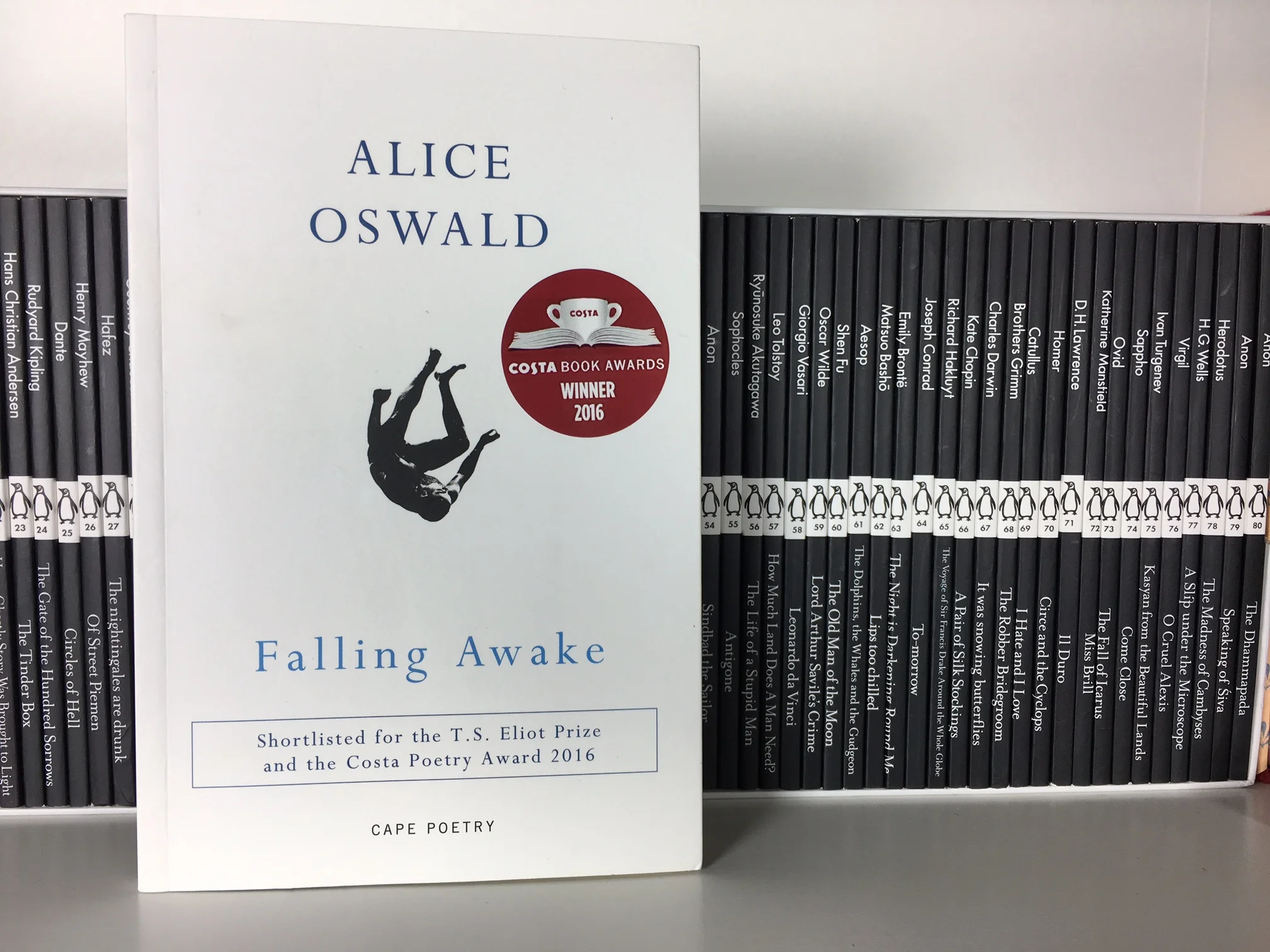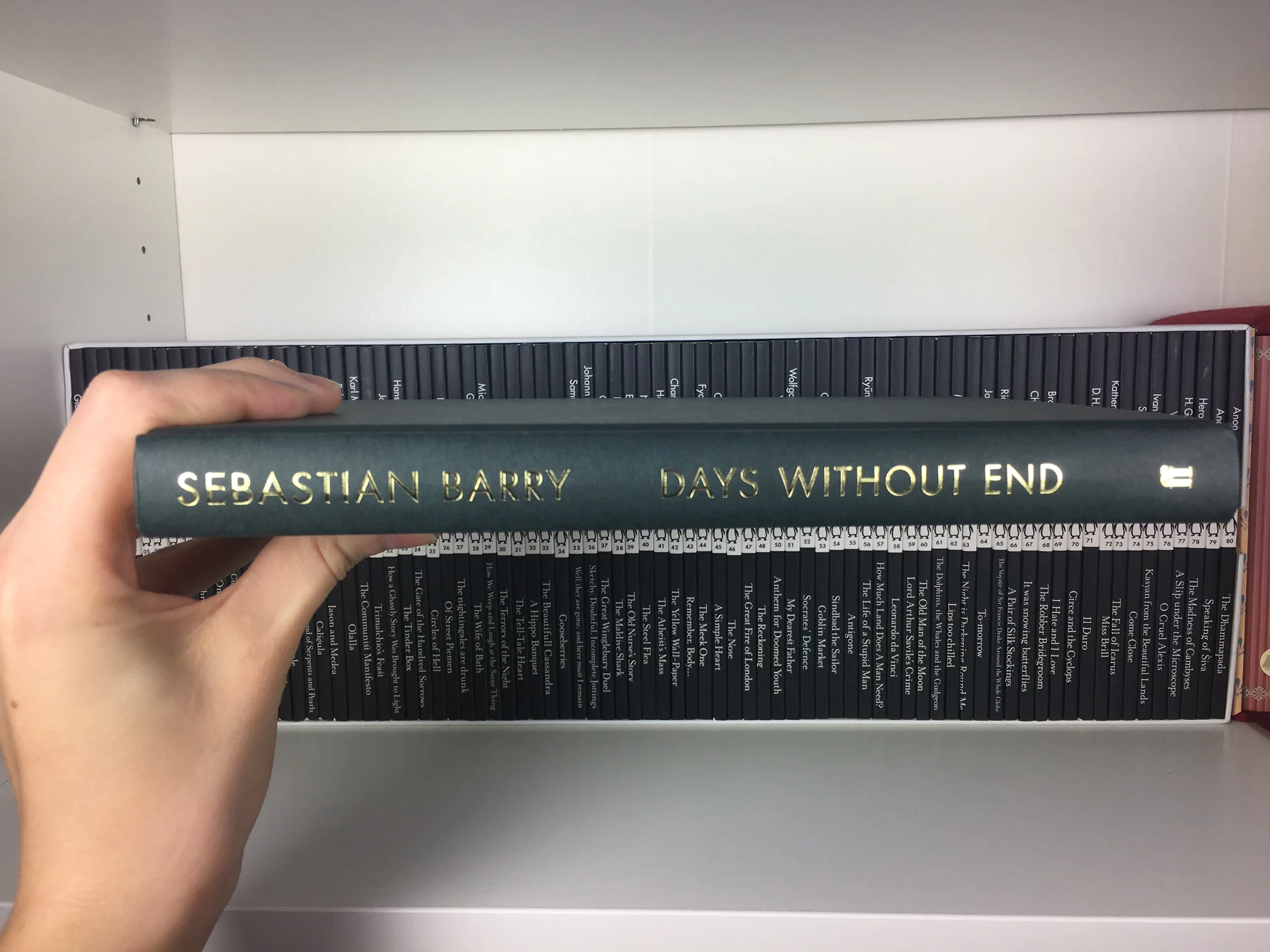If you've been on my blog before, you'll know that I absolutely love the Costa Book Awards and have enjoyed both the longlists and shortlists in the previous years. However, 2016 was the year of my thesis and I missed out on reading the fiction shortlist like I usually do.
Now that I am a free woman again, I decided to make up for this loss and read both the winner of the fiction and poetry category to prepare myself for the announcement of the overall winner tonight.
Falling Awake by Alice Oswald
Before I start this review, I want to highlight my absolute lack of poetry knowledge. As I mentioned in my reading resolutions for 2017 video, I am not a poetry reader. Since I've never really read any poetry, besides the mandatory poems a English literature student has to read, I had no clue where to start finding poetry to read. And then I discovered that Falling Awake by Alice Oswald has won the poetry section of the Costa Book Awards and figured that was a good enough reason to start with that collection.
Falling Awake isn't an easy poetry collection to read. Its premise is based on Greek mythology, which I actually found a comfort because I am very interested and have learned quite a bit about mythology. The collection consists of two parts and I must say that I found the second part a lot easier to understand than the first one.
The key with Falling Awake, for me at least, was to really take my time to read and re-read and think about what exactly I read. This is probably true for a lot of poetry, which is supposed to pack a lot in a small package, but it wasn't really my thing. The second part of the collection was enjoyable and easy enough to understand that one, very focused, read was enough for me, but the first part was just exhausting.
While I think this is probably due to my inexperience, Falling Awake was only half enjoyable for me. However, I'm excited to pick it back up in a few weeks and see if some thinking and time has changed my mind about the collection and my understanding of it.
Days Without End by Sebastian Barry
This book completely surprised me in every way possible. Days Without End is the story Thomas McNulty, a soldier who has fled the Irish famine and is followed through the Indian Wars and Civil War in America with John Cole, a friend he met when he was still a young child.
The first thing I really enjoyed about this novel is the new things I learned. Since I went to high school in Europe, my knowledge of both the Indian War and Civil War is limited. This novel really helped me understand how gruelling these wars were and also how incredibly futile for so many people. While Thomas fights against the Indians, he doesn't understand why he has to kill them. This is mirrored in the Civil War where he is on the side of the North, but none of the soldiers seem to realise that the war is about slavery. Neither of these wars, or maybe any war at all, is a grand moral fight. It is just soldiers following orders because they will be killed if they don't. Realising this was extremely eery but also made me realise, especially for the Indian War, how extremely useless and gruesome it was.
However, Days Without End is a lot more than just a war story. Thomas and John start a relationship together, something highly uncommon in that time, and Thomas also struggles with his gender identity throughout the novel. Without giving too much away, Thomas starts experimenting at a young age with cross-dressing. First just for work, but slowly he starts questioning his gender identity more and more. The way Sebastian Barry was able to combine the masculinity of the violent war with Thomas search within himself was beautiful. I really enjoyed the complexity of Thomas and John's relationship, both with themselves and each other.
Days Without End is truly remarkable in its original approach to a war novel. While Falling Awake was hard for me to grasp, Days Without End easily guided me through unknown topics and made me fall in love with the characters at the same time.


